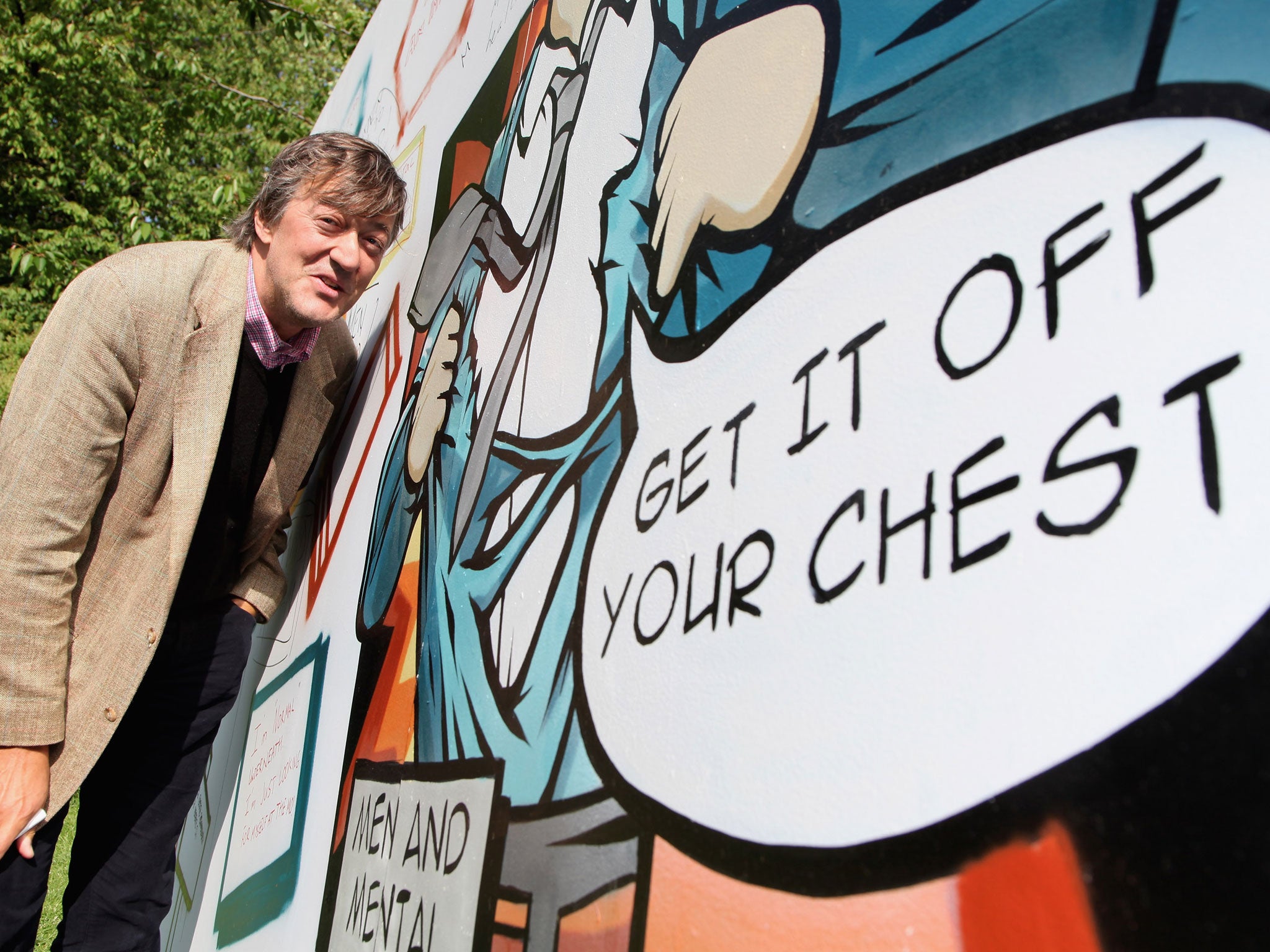He phrased it badly, but Stephen Fry pointed out something important: trigger warnings are oppressive too
We can seek to protect victims to the point that they're marginalised all over again


Every once in a while, national treasure Stephen Fry veers somewhat off-piste. There was the time he described the MPs’ expenses scandal as “not that important”, rather missing the gravity of the situation. He made some slightly questionable remarks about Operation Yewtree in the midst of its investigation into historic sex abuse cases and, once, in a discussion about Poland and the Polish in Europe, he pointed out that he and others “remember which side of the border Auschwitz was on”.
My personal favourite was a casual dismissal of all forms of female sexuality and emotional hinterland in a single statement: “The only reason women will have sex is that sex is the price they are willing to pay for a relationship with a man, which is what they want.”
The less said about that last little slice of ignorance the better. But with views like these, dear old Fry can hardly act surprised when he faces another bout of public criticism. In the past, the attacks against him have been so aggressive that he’s been moved to leave the social networking site Twitter. And then rejoin again. And then leave. And then rejoin.
This week he was at it again, warning victims of rape and child sexual abuse not to become “self-pitying” by encouraging the use of trigger warnings to alert people to explicit or potentially upsetting content in literature or theatre.
The problem for Fry is that he is often trying to make a nuanced, interesting point about people, society or government, but his appetite for the limelight takes over and out comes strident language that is bound to offend. In the furore that inevitably follows, the broader message is lost.
Here, Fry’s point is actually one that many feminists and abuse victims – the very people who have marched with digital pitchforks this week - would fully agree with: that ‘trigger warnings’ and the like act only to stifle debate and smother the voices of those who are raped or abused.
Freedom of speech requires that no barrier be placed between the writer or creator and their audience on such matters. The voices and experiences of the marginalised should be heard, and it doesn’t matter who that offends. Or, as the comedian Ricky Gervais succinctly put it, “offence is the collateral damage of freedom of speech”.
I’m not condoning the alarming language Fry used to deliver this message. “No one’s going to like you if you feel sorry for yourself – just grow up,” seems to me, in its tone, just as childish as the suggestion that every novel featuring a scene of abuse should be prefixed with some kind of warning for the sensitive.
What worries more about this whole episode, however, is the language that Fry’s critics use. It’s just as troubling in its sentiment.
Those who have defended trigger warnings say that they provide victims of abuse with an opportunity to help themselves in their own recovery, to protect their mental health by removing themselves from potentially upsetting or traumatic situations. This is known, in feminist circles at least, as “self-care”.
Whether or not it is a useful therapeutic strategy probably depends on the individual; some will feel supported by such tactics, while others may staunchly object to the metaphorical wrapping in cotton wool expected of them just because they had the misfortune to be the victim of an attack.
My problem with it amounts to something more fundamental. Self-care – whether heeding ‘trigger warnings’, choosing to move in ‘safe spaces’, or removing oneself from tricky conversations – puts all the emphasis on the victim.
Instead of preventing rape from happening, we’re asking rape victims to make sure they steer clear of being reminded of their trauma. Instead of tackling the social pressures that keep women trapped in abusive relationships, we’re asking them to take full responsibility for their mental health. If the economic reality of your life is that you’re stuck in a job that’s physically and emotionally draining, then it’s your own fault for not spending long enough meditating or remembering to ‘be in the moment’.
Critics of the mindfulness craze have pointed to the same problem: spend five minutes focusing on your breathing if you like, and if it makes you feel calmer and more in control, well I’m pleased for you – but it won’t solve the structural social problems that you’re feeling the sharp end of.
Those who rushed to attack Fry seem to be missing the bigger picture. He chose his words badly, no doubt, but in defending the right to full freedom of speech – and to discuss rape and abuse in the most open and provocative manner possible – he’s doing more to tackle these problems than those who seek to protect victims to the point where they’re marginalised all over again.
Join our commenting forum
Join thought-provoking conversations, follow other Independent readers and see their replies
Comments
Bookmark popover
Removed from bookmarks